(December 15, 2022) A rebellion put Indian American Indrani Das on the path to research brain injuries, something that led her to win a quarter-million-dollar at the Regeneron Science Talent Search award as a 17-year-old. While most Indian parents coax their children to become doctors when they grow up, Indrani’s parents weren’t the same. With their roots in Kolkata, the banker couple had warned their daughter against opting for science. They even told her to not be a doctor. “Don’t become a doctor, it’s long and expensive. So, I decided I wanted to be a doctor,” she said. This passion led the Harvard University graduate to a medical-oriented project that focuses on her new approach to neurological damage.
Always fascinated with brain injuries after learning about their irrevocable and devastating effects, she decided to learn more with her full-fledged project. As a senior at the Academy for Medical Science Technology in New Jersey, she explored how brain damage occurs and examined ‘astrogliosis’, a process that can lead to the excess production of a toxin that can damage neurons. She was keen to understand the nuances of how brain damage occurs and if she could figure out a way to slow or reverse the process. “My work centers on repairing the behaviour of supporting cells to prevent neuron injury and death. It was really that shock of what it can do to a person that pushed me to work,” she explained.
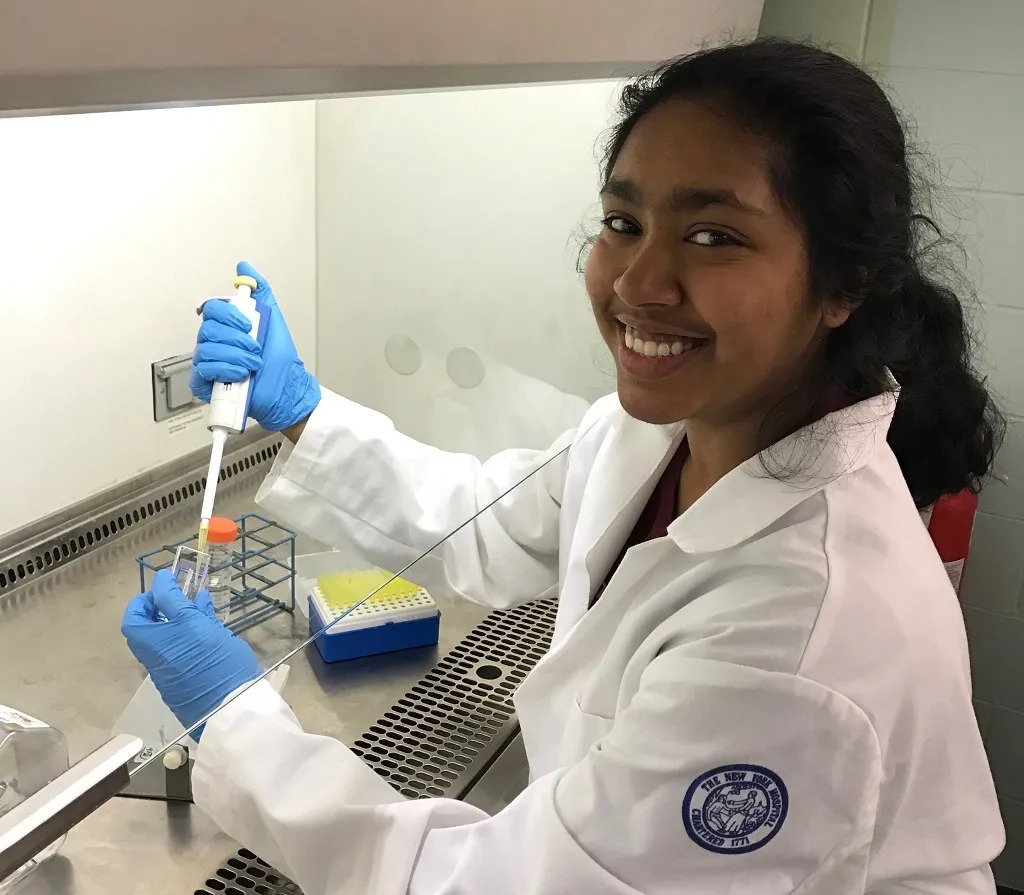
Indrani Das is an Indian-American young scientist
This very work led her to win $250,000 at the 2017 Regeneron Science Talent Search, which is nicknamed the Junior Nobel Prize. “These diseases are so prevalent, so debilitating, it matters to me that I continue to work on this,” she added. Her purpose is to treat traumatic brain injury which can lead to stroke, Alzheimer’s, and Parkinson’s diseases. “In all these injuries, there is an insult to brain tissue which on the one hand causes neurons to die, but on the other hand causes supporting cells to calm these neurons. In my model, I found one of the problems which contributing to the disease condition, and then I also helped to treat it,” she added.
The New Jersey resident was only three when she heard about the Regeneron Science Talent Search, as her love for science began blossoming at a young age. Seeing her fascination for dinosaurs and discovery at a young age, her parents suggested she submit her fossil findings to the competition. Years later, she not just applied but also took home the top prize for promoting neuron repair. But it wasn’t a cakewalk for the Indian American who went through a process of reading scientific literature and running small experiments over many years to finally work on the subject.
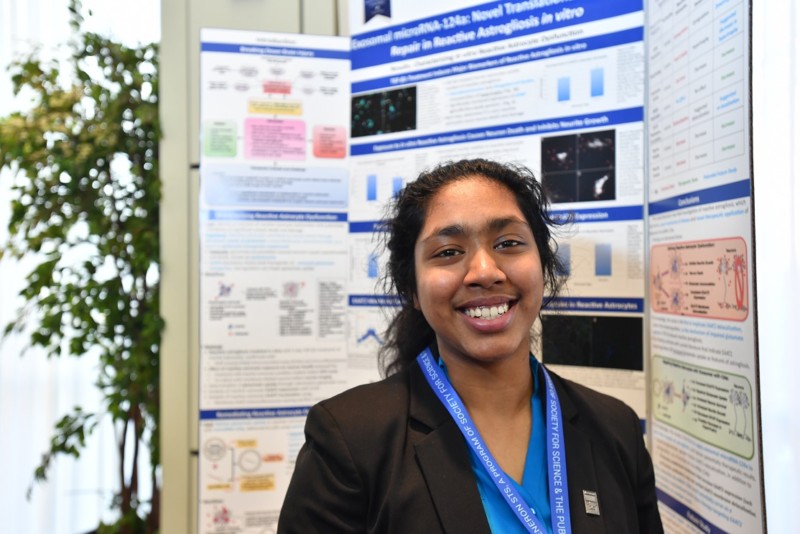

Indrani Das won the 2017 Regeneron Science Talent Search
It was at the beginning of her high school as a 14-year-old that she began working on the project with only a rudimentary understanding of biology. The lack of in-depth experience with molecular biology and neuroscience was one of the biggest challenges for Indrani, which was exacerbated by the absence of “any one source for basic information.” “What set the tone for my work was the learning curve I went through in the following months and years. I spent hours each day reading research journals to come to an understanding of the problems in a brain injury that I wanted to study, and used my growing knowledge base to help me conduct more and more refined experiments,” the Global Indian said in an interview.
Being educated at the Bergen County Academy for Medical Science Technology, one of New Jersey’s top public schools, she would often push her limits by conducting her research projects. That’s when she wanted to focus on the brain. “Neurodegenerative diseases ruin a person’s quality of life, they take away from (a person’s) basic humanity. It was that impact I wanted to understand and to study and to try and repair,” she told CNN. With the help of mentor-cum-biology teacher Donna Leonardi, she embarked on her research journey, and began learning how cells lived and died by growing and manipulating cell cultures. She’s also a member of the Stevens Lab at Boston Children’s Hospital, where she works on synaptic pruning, a critical process in brain development.
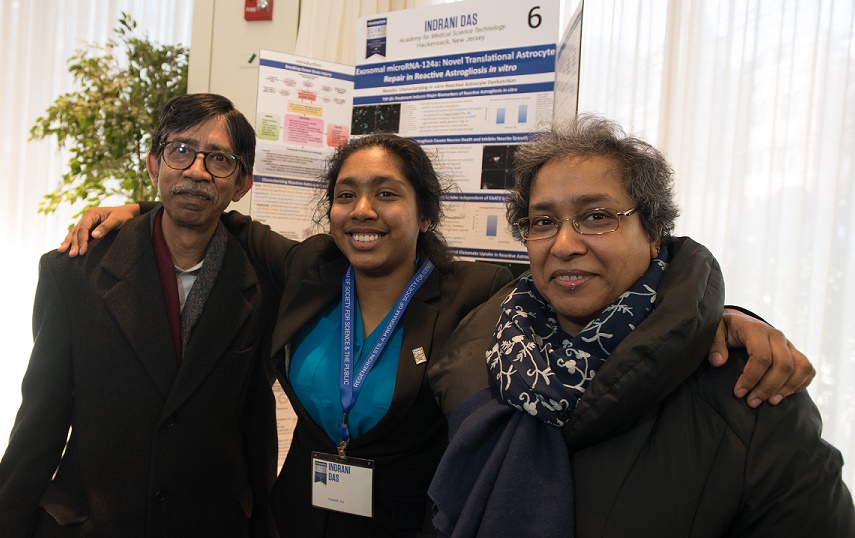

Indrani Das with her parents
Indrani, who aspires to be a physician-scientist, is grateful to her parents for letting her follow her passion. “I’ll never forget my parents’ stories of how they worked full-time day jobs while securing additional degrees by night, and saved religiously for over a decade before my birth to provide me with the most comfortable life possible. I wouldn’t say that I’ve chosen a different path from my family, but that my choices reflect the evolution of theirs. We’re living the American dream,” she added.
Indrani, who has plans of wrapping up her Ph.D. program in the next 10 years, advises youngsters to not be limited by their circumstances and to break bigger goals into small steps. “At the end of the day, it’s not who you know, how much you know, or what you have that determines whether you achieve your goals – it’s how much you are willing to go through. If you aren’t losing your drive to excel, you’re winning the game.”

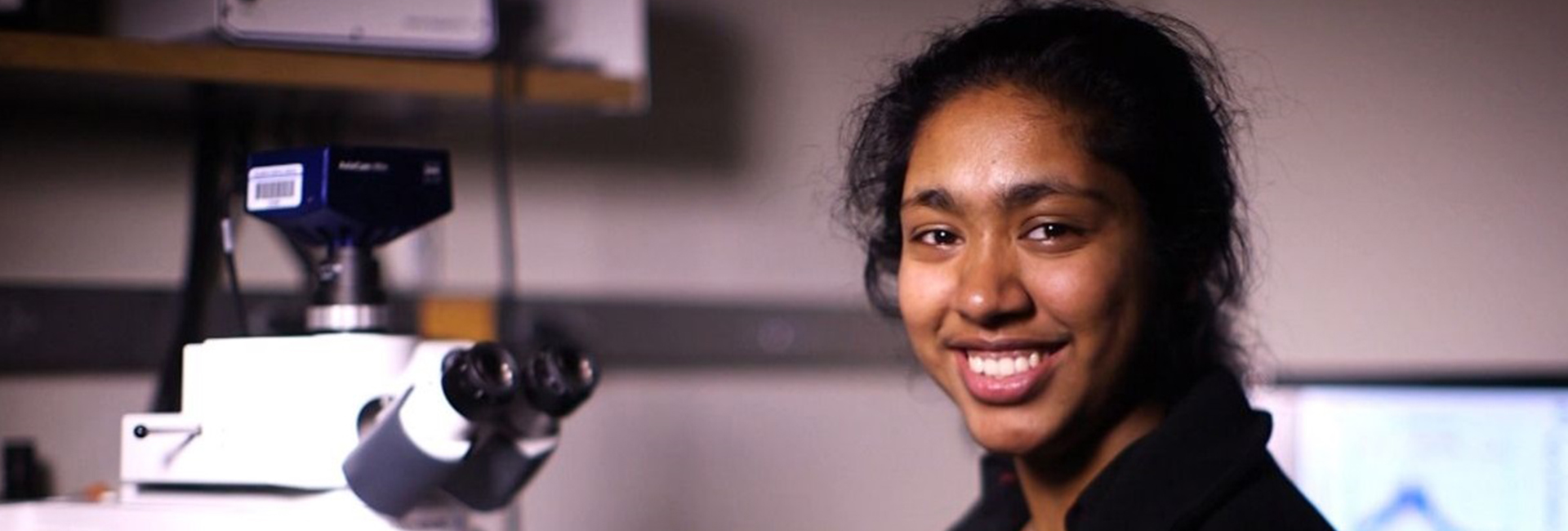
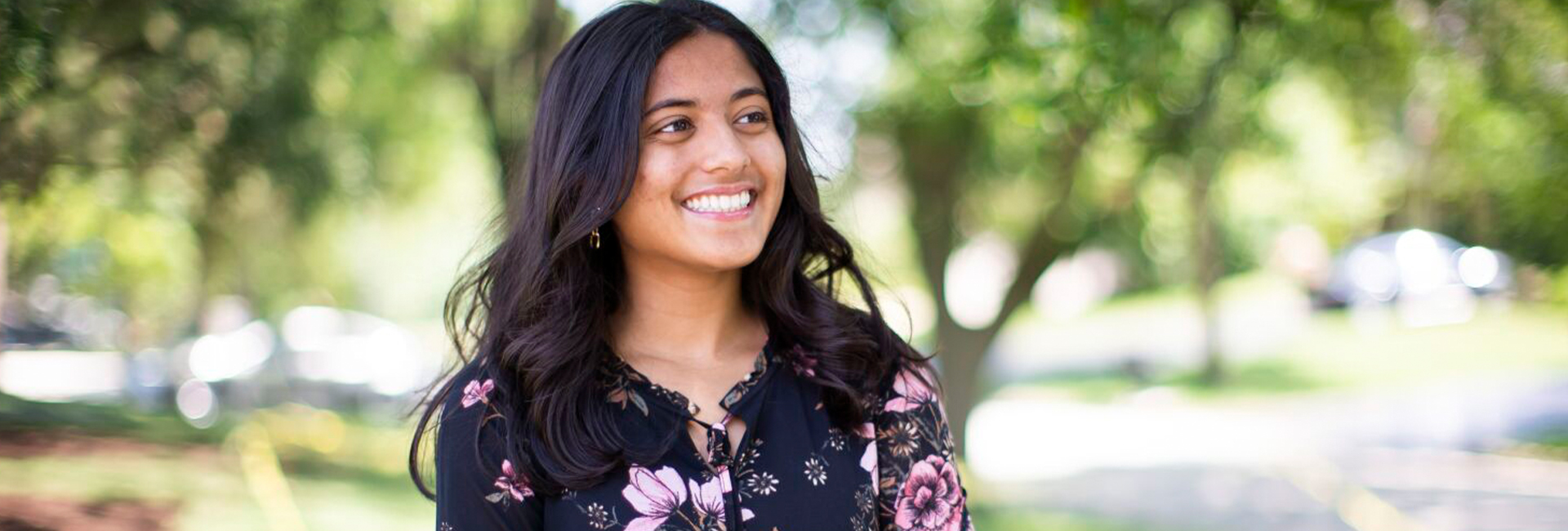
So so proud of her! A woman changing the next century…she will go down in history as a great scientist!
Wow, intelligence just radiates off of her! Can’t wait to see what she does next. I’m in awe 🙂